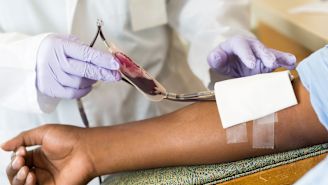Long-chain fatty acid oxidation disorders (LC-FAODs) are rare metabolic disorders that affect the way a person’s body digests long-chain fatty acids, a major source of energy for the human body that are found in many foods. In most states in the U.S., screening for LC-FAODs is standard for newborns, and consequently, the majority of people diagnosed are diagnosed shortly after birth
While these disorders are a serious health concern, there are strategies to help manage the condition and help people overcome the challenges of living with a LC-FAOD.
If you are the parent of a child diagnosed with a LC-FAOD, the following tips, topics and questions may help when talking to your child’s healthcare providers.
Be prepared to work with several HCPS
LC-FAODs can cause a variety of different symptoms that affect the body in different ways. As a result, people living with a LC-FAOD may need to work with a number of healthcare providers with different specialties. In addition to your pediatrician, your child’s healthcare team may include a metabolic dietitian, a neurologist, a geneticist, an ophthalmologist, a cardiologist, and/or a gastroenterologist.
Keep your paperwork organized
Having your child’s medical records organized will make life easier when seeing a new specialist, talking to your insurance company, communicating with healthcare providers, and if you need to get a second opinion.
Know the type of LC-FAOD
There are several different types of LC-FAODs (as well as other types of fatty-acid oxidation disorders). Treatment will depend on the type. Be clear on which type of LC-FAOD your child has, which will be important when talking to specialists and when doing your own research.
Talk about your child’s nutrition
Eating and nutrition are a major focus of managing an LC-FOAD. Eating the right foods, eating on the right schedule, and avoiding the wrong foods can help a child with LC-FOAD avoid episodes and complications while meeting their nutritional needs. Work with your child’s healthcare providers to develop an eating plan.
Ask about prescriptions and supplements
Depending on the type of LC-FAOD, a child may need to take nutritional supplements. They may also be prescribed a medication for treatment. If your child is prescribed a medication, carefully review the instructions for that medication with the healthcare provider that prescribed it, including the dosage, dosing schedule, keeping track of doses, and possible side effects and interactions. Bring up any questions you have and ask for an explanation if something isn’t clear.
Talk about appropriate activity levels
Strenuous or intense physical activity can trigger symptoms. Ask your child’s healthcare providers about what level of activity is appropriate.
Have a plan ready for an acute episode
An acute episode refers to the sudden worsening of symptoms. It is important to have a plan in place in case of such an event. Talk to your child’s healthcare providers about what symptoms to watch for and what treatment your child needs if they experience an episode.
Talk about your child’s development
LC-FAOD can cause delays in physical and mental development. Talk to your child’s healthcare providers about where your child is in terms of development and if there are therapies or strategies that might be beneficial for your child’s development.
Talk about your concerns
If you are concerned about something, bring it up. Be honest if you do not understand something or feel a concern hasn’t been addressed.
Take care of your own health
Remember that it is important to take care of your own health too. Keep appointments with your own healthcare providers and pay attention to your stress levels and moods. By doing this, you’ll also be setting a good example for your child about taking care of one’s health.






